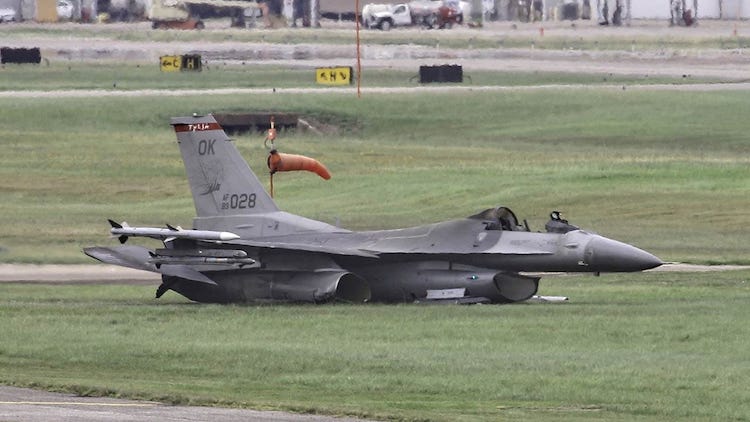
As I pondered and pined for the days when a certain (unnamed) office would open before 8AM, a friend said something that had me thinking. It started with me saying something like: “I remember when the boss thought what they were doing was important enough that they opened early and always had someone in the office during duty hours, if only to answer the phones.” My friend’s response: “That was before COVID.”
I’ve come to suspect that COVID got people believing that they didn’t actually have to show up at work. Maybe even that they didn’t need to put in any kind of extra effort at all. Something like the “quiet quitting” rage that’s made the news lately.
It’s becoming apparent to me…and this only through personal observation, so take it for what you think it’s worth…that the service hasn’t really made a comeback yet when it comes to realizing that there’s more to doing the job than just showing up at a physical location — but that showing up is half the battle. COVID seems to have accelerated the already growing disconnect between the older concept of work ethic as a driving force in the American success story and the new “self-as-all-important” set. Regardless, there really is something to be said for availability. It actually is important to receive a request or a task, and then getting it done before you take off or check out for whatever reason. To know that there are more people dependent upon your work than you, and that the absence of a particular person on the continuum of getting something done puts a stop to a project’s efficiency and frustrates others.
But it seems those absences have become the norm.
I’ll admit, I’ve written a few pieces that haven’t seen the light of day here because I’m trying to be fair to a lot of people I know and respect in some way. One of my posts included a rundown of the Air Force on Osan’s schedule in the 46 days between the Memorial and Independence Day holiday weekends. I remember the frustration well, having to slow things down for this run: a four-day weekend for Memorial Day; a four-day weekend for Juneteenth; a four-day weekend for Independence Day; early release for picnics before the Memorial and Independence Day weekends; at least one “Resiliency Tactical Pause (RTP)” where offices spend a half day doing resiliency “training” followed by a half-day off for “team-building” activities like bowling, golf, paint ball; and at least one promotion and recognition ceremony that accounted for yet another half-day. And after all of that, factor in whatever other reasons people had for being out of the office.
As if that wasn’t enough time off, over just the last three weekends prior to this writing, they’ve had a four-day for Labor Day, went back to work for only two days, followed by a three-day for Korean Thanksgiving, and then another three-day for an exercise in which a great many of the beneficiaries of the day off did not even participate.
Here’s what I think is happening – the work ethic of a great many of the Airmen on this base (don’t get me wrong, there are some incredibly dedicated and hardworking (especially shift working) Airmen out there) has slipped on a slope set up by leaders who don’t really get it. Airmen look at all the time off they’re given and have come to the conclusion that what they’re doing really isn’t that important. The expectation is now to get time off for anything and everything. For leaders, it’s an easy default. Need to take care of something out of the office? Sure. Go ahead. Or maybe it’s Friday and the weather’s kind of nice? Let’s get an early start on the weekend. The bottom line impression Airmen seem to be getting is that if they can take all of these other days off for the smallest of reasons, then what’s one more day? What’s a few hours here and there? And after all, didn’t COVID teach us that we don’t even have to show up half of the time and the job still got done?
Throw in, too, the Air Force’s move away from conformity and toward individualism, and it has me wondering how the situation can get any better. Sure, we think things like relaxing grooming standards and letting people walk with their hands in their pockets or while talking on cell phones is a step in some kind of right direction, but maybe all it’s really doing is setting people up to think that they are the center of the Air Force’s purpose. They’ve been successful lobbying a permissive group of leaders in getting the superficial things they want, and that has them thinking that the service will bend to their collective wills.
But at what cost? Will leaders someday come to realize that a payment is coming due? My cause for alarm is knowing that, in the military, there’s a real possibility that that payment may come in the form of blood. Strict standards. Accountability. Discipline. Even conformity. These are not dirty words. They serve a critical purpose in a profession where one can literally die from not only one’s own carelessness, but even worse, the carelessness of those around them. All it takes is one weak link.
One of the common mantra’s I heard while in the military was, “You’re not irreplaceable.” It’s a good thing to keep in mind, because if an organization is to succeed, someone will always have to step up. But, with what looks like an increasingly low bar, what purpose is there in stepping up in the first place? And will the ones being asked to step up be ready when the bombs are falling and the bullets are flying? I hope they are, but they certainly aren’t being prepared for it this way.


Wow 👏
At least they recieve hazardous duty pay for that awful demanding situation.